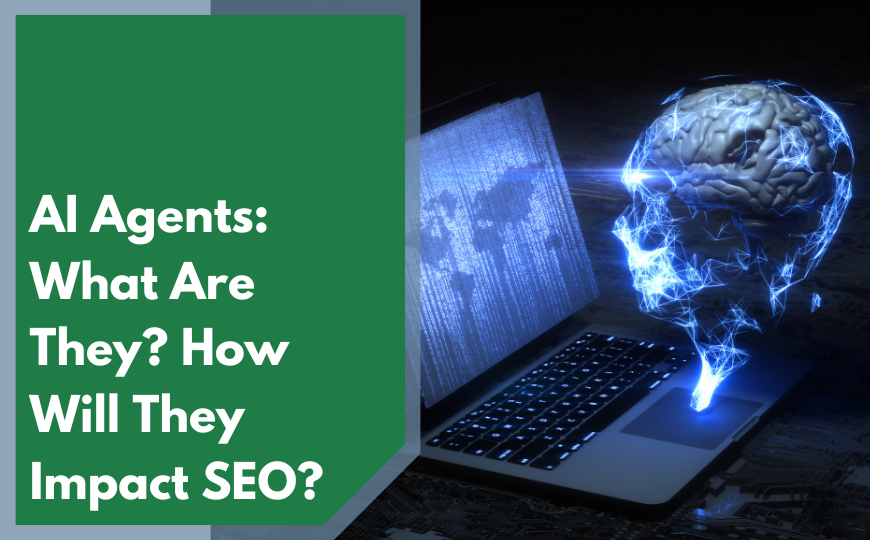The way people search for information is evolving, and chatbots are at the center of this transformation. AI-driven chatbots like Google Gemini, Bing Copilot, and ChatGPT now play a growing role in information discovery, supplementing traditional search engines with conversational, AI-generated answers. Instead of relying solely on traditional search engines, users are turning to conversational AI for direct answers, product recommendations, and decision-making insights.
For businesses, this shift means that optimizing your content for chatbot-driven searches is no longer optional. Companies that fail to adapt risk becoming invisible to prospects who rely on AI-generated results for research and purchasing decisions. In this article, we explain how chatbots source and display information, which is crucial to helping your business maintain visibility in an AI-first search landscape.
How Chatbots Source and Display Information
Unlike traditional search engines that rank websites based on a mix of relevance, authority, and technical SEO factors, AI chatbots extract data from multiple sources, synthesize the information, and present conversational answers. Each AI chatbot has its own unique way of retrieving and displaying information:
- Google Gemini integrates deeply with Google’s ecosystem, pulling information from websites, structured data, and Google’s Knowledge Graph to generate responses.
- Bing Copilot uses Microsoft’s AI advancements to prioritize reliable sources, structured content, and cited references.
- ChatGPT by OpenAI generates responses based on its training data and may incorporate web content through integrated browsing in tools like ChatGPT Pro with browsing enabled, but it does not retrieve real-time data from the web by default.
For your business, understanding the way these top three chatbots work means that securing a spot in AI-generated answers requires more than just traditional SEO. We’ll get into the details of how to align your content with the way chatbots process and present information, which includes optimizing for machine-readable content, ensuring factual accuracy, and structuring data in a way that supports AI retrieval.
Four Steps to Optimize for AI Chatbots
1. Provide Authoritative Sources and Structured Content
Chatbots prioritize authoritative content that aligns with verified data sources. Your business must ensure that your content is well-researched, linked to credible sources, and formatted in a way that AI can easily understand. Structured data and schema markup improve AI understanding of your content, but citations in chatbot responses are not always guaranteed. Focus on building brand authority across channels to increase visibility in AI outputs.
Additionally, AI chatbots give preference to content that demonstrates expertise. Articles, whitepapers, and industry reports that showcase in-depth knowledge about a topic are more likely to be referenced. To improve credibility, include citations, references, and expert opinions in your content. Engaging in digital PR and securing backlinks from authoritative websites will also further strengthen your brand’s reputation in AI-driven search.
2. Create Content for Conversational AI
Optimizing for chatbots requires a shift from keyword-stuffed content to natural, conversational responses. Chatbots prioritize clear, well-structured answers over long-winded paragraphs filled with jargon. To start, structure your content using question-based headings, concise answers, and a logical flow that mimics human conversation.
Since chatbots often answer user queries in real-time, another practical step is to optimize for frequently asked questions and common user concerns about your business. Creating dedicated FAQ pages, knowledge bases, and chatbot-friendly content helps ensure that AI pulls the most relevant and accurate information. While voice search and chatbot queries both use natural language, they serve different functions. Voice search typically pulls from structured content in featured snippets, while chatbots process and synthesize longer-form, conversational inputs. Optimizing for both requires a blend of clarity, structure, and intent-based phrasing.
3. Implement AI-Friendly Schema Markup
Schema markup—including rich snippets, FAQ schema, and structured data elements—plays a crucial role in optimization because it helps chatbots understand and categorize content more effectively. Implementing schema markup improves content clarity for AI and search engines alike, making it more likely that your content will be selected for featured snippets, voice answers, or chatbot responses.
For example, marking up definitions, product specifications, and step-by-step guides allows AI chatbots to extract and present information in a structured manner. Continuously update your schema markup to align with AI’s evolving requirements and aim at better engagement and increased credibility. Investing in structured data improvements can also enhance your brand’s visibility in AI-powered search results, which leads to our fourth step.
4. Enhance Your Brand Presence in AI Chatbots
Visibility in chatbot-generated responses is not just about content optimization—it’s also about brand authority. When your company engages in digital PR and secure media mentions, this active online presence makes you more likely to be recognized as a credible source.
Building strong backlink profiles from authoritative sites, contributing to industry discussions, and getting featured in AI-relevant knowledge panels can significantly improve chatbot visibility as well. AI models favor well-referenced content, so actively building authority through multiple channels will give your business a competitive edge.
Chatbot SEO is Crucial for B2B Lead Generation
For B2B companies, chatbot optimization is a game-changer. AI chatbots are now a critical touchpoint in the buyer journey, providing decision-makers with fast, data-driven insights. If your company’s content isn’t visible to AI chatbots, you’re missing out on valuable leads.
Buyers increasingly rely on conversational AI for market research, vendor comparisons, and technical insights. If your company positions itself as a trusted source within chatbot responses, you will have a direct line to high-intent prospects who are actively seeking solutions.
AI-powered chatbots are also increasingly being integrated into business workflows. When you optimize for chatbot-driven search queries, your business will not only attract more leads but also improve customer engagement through automated, AI-enhanced interactions. On the other hand, businesses that fail to align their content strategies with chatbot search models risk losing ground to competitors that do.
Ready to Define the Future of Chatbot Optimization?
As AI technology advances, chatbot optimization will continue to evolve. AI-driven assistants are becoming more sophisticated in processing complex queries, analyzing sentiment, and generating responses based on predictive analytics. It’s time to integrate AI-driven tools into your marketing strategy and give your business a significant advantage within the industry.
Ready to increase your brand’s visibility in AI-driven conversations and meet high-intent buyers where they search? Position your business for chatbot-driven search queries by receiving a detailed audit prepared by our team of digital marketing experts. Sign up for our AI SEO Maturity Audit today!






